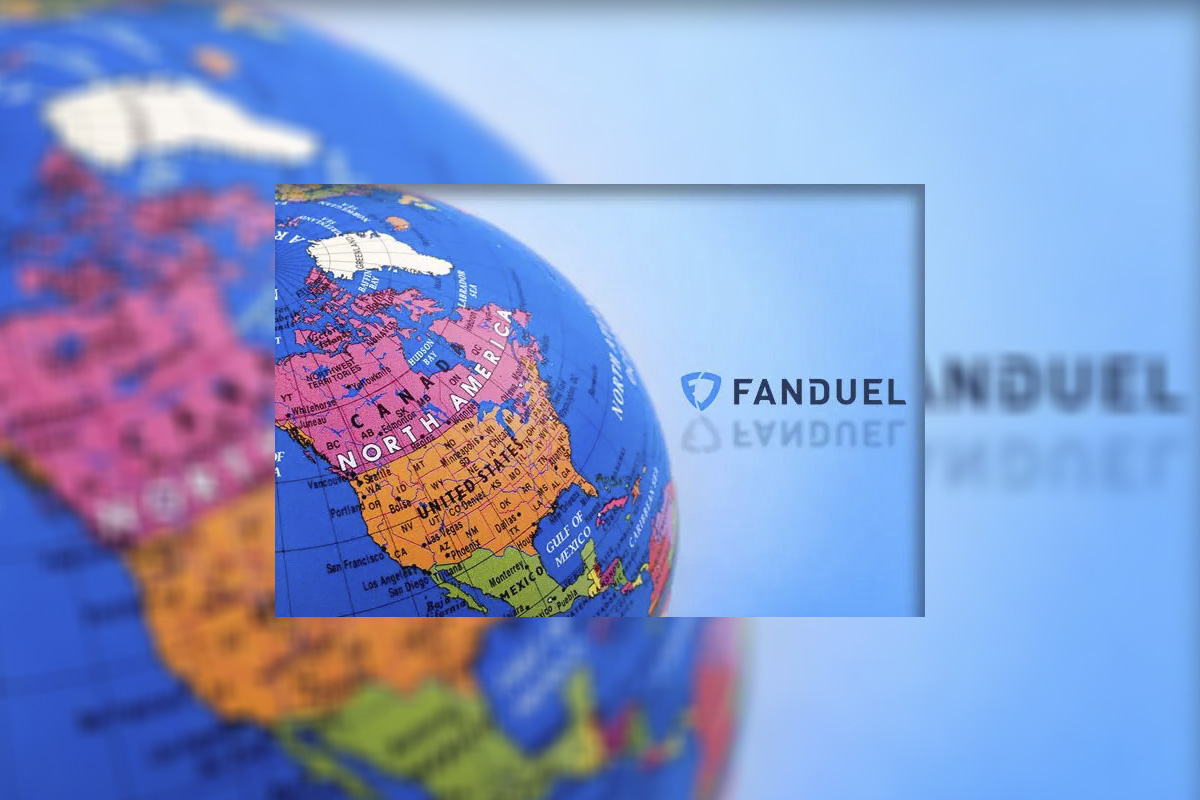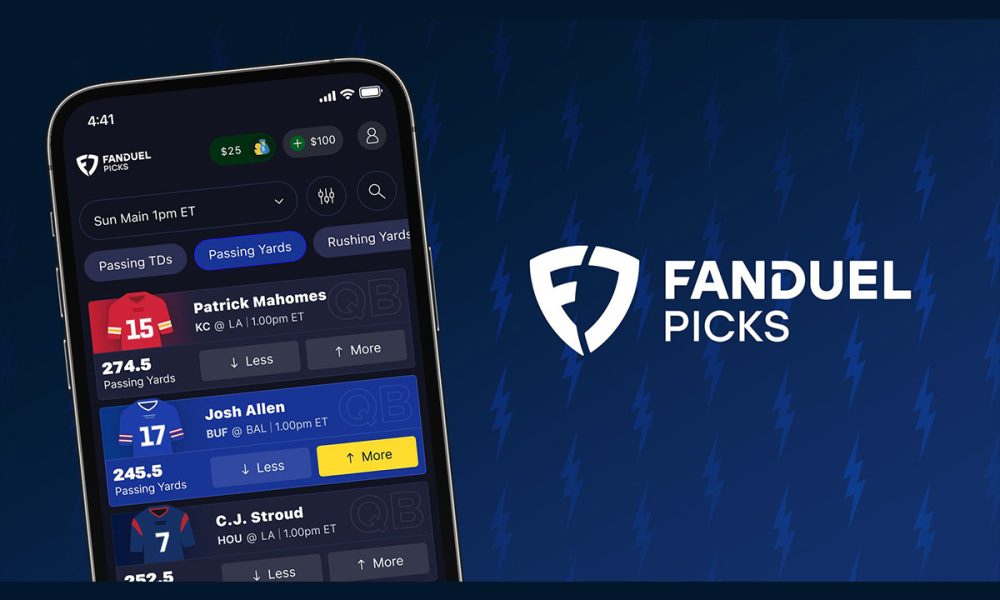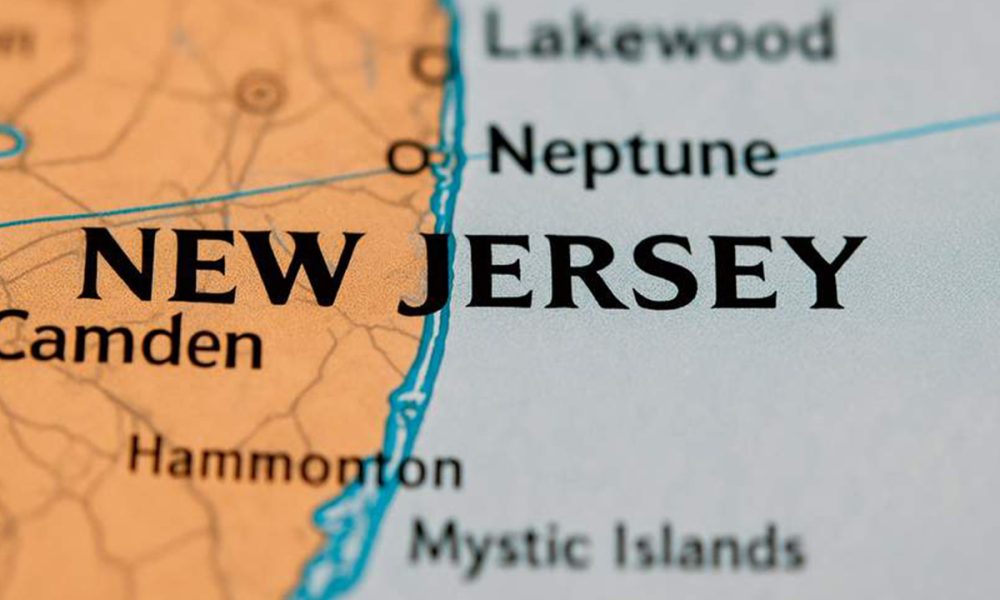

FanDuel
FanDuel Marks Responsible Gaming Education Month with Major Investment in its Responsible Gaming Ambassador Program
September is Responsible Gaming Education Month, and FanDuel, the premier online gaming company in North America, is making major investments in its responsible gaming advocacy efforts with the additions of global soccer icon Carli Lloyd and PGA TOUR rising star Tom Kim who will join FanDuel’s RG Ambassador Craig Carton this season. FanDuel is also introducing a comprehensive series of new initiatives that will leverage a unique combination of talent, content, and partnerships to further the company’s efforts to educate fans on the importance of playing responsibly.
New Responsible Gaming Ambassadors
Soccer icon Carli Lloyd and rising golf star Tom Kim are the newest FanDuel Responsible Gaming Ambassadors. Both Lloyd and Kim will partner with FanDuel to raise awareness of the importance of responsible play and the tools that FanDuel provides to fans to manage their play, including deposit limits, wager limits, time limits, and more. They will appear in future responsible gaming content and join Carton, as well as NFL legend Rob Gronkowski and Kay Adams, Host of FanDuel TV’s Up & Adams, in bespoke advertising to promote responsible play.
“I am excited to be joining the FanDuel team as a Responsible Gaming Ambassador. As sports gambling continues to become more accessible, I think it is critical fans adopt a mindset that gambling is supposed to be a form of entertainment and that tools are available to them within the FanDuel Sportsbook app to stay in control of the way they play. I’m eager to help my fellow ambassadors spread the word on the Play Well lifestyle,” Lloyd said.
“When evaluating a potential partnership with FanDuel, I knew I wanted to be able to use my platform to advocate for responsible play. It is clear everyone at FanDuel takes responsible gaming seriously, and I am proud to join their team as a Responsible Gaming Ambassador and raise awareness among my fans, especially those around my age, and the golf community on and off the course,” Kim said.
New Responsible Gaming Content
This month, FanDuel will premiere its new responsible gaming advertising campaign. FanDuel’s first bespoke television creative entitled “The System” is back but with a new iteration created by FanDuel’s internal creative team. Part two of the multi-media campaign is backed by significant media investment and will air throughout the football season. The advertising heroes FanDuel’s Play Well tools like wager and time limits that customers can set up for responsible gaming play.
FanDuel also recently paired Carton, host of FS1’s The Carton Show, with NFL legend Rob Gronkowski and FanDuel TV host Kay Adams together on new responsible gaming content for fans, including a candid podcast style discussion about problem gambling and its associated risks. During the series the stars will discuss the tools and resources available to help fans always stay in control. In addition, the trio will be featured in a new social series entitled “FanDuel FanDial” where they will be live calling and surprising fans with video calls. During the calls, which capture fans’ genuine reactions, the trio use their impromptu conversations to walk fans through the self-service responsible gaming tools available on the platform. All content will be featured on FanDuel social media channels in the coming weeks.
“Spreading the message of responsible gaming is deeply important to me, and I’m proud to continue working with FanDuel to raise awareness for problem gambling and the tools available to address it. Working with colleagues like Kay and Gronk help destigmatize problem gambling and more importantly help make betting responsibly cool. Adding two more stars, Carli and Tom, to the team is exciting and I can’t wait to collaborate with them. The initiatives we are highlighting during Responsible Gaming Education Month have a year-round impact, and I look forward to elevating our voice to protect as many fans as possible,” Carton said.
Educational Course with Front Office Sports
FanDuel announced it is partnering with Front Office Sports to launch a groundbreaking and first of its kind free responsible gaming educational course housed within Front Office Sports’ Learning platform in early 2024. The course will cover the fundamentals of responsible play and the ever-changing sportsbook industry. Upon completion, visitors will be able to add a badge to their LinkedIn profiles and feature the certification on their resumes. Those interested in signing up can visit fos-learning.com.
“We believe that educating the sports industry at large on what responsible gaming means is an equally important part of our mission to promoting responsible play with consumers. I’m delighted to partner with Front Office Sports to break new ground and have training available that drives a culture of RG in our industry,” Alison Kutler, FanDuel Sustainability and Responsible Gaming Vice President, said.
FanDuel’s Second Annual Play Well Day
On September 26, FanDuel will hold its second annual Play Well Day, hosted in New York City and broadcast to employees across the globe. This employee-only event will focus on the company’s commitment to building a culture that is always focused on customer protection. Play Well Day will include all-day seminars with both FanDuel executives and industry leaders and RG Ambassadors who will discuss the everyday role each employee plays in promoting safer play for fans.
“FanDuel remains steadfast in its commitment to promoting responsible gaming, and we’re thrilled to be rolling out this series of programming to mark Responsible Gaming Education Month. Bringing Carli and Tom on as RG ambassadors who can spread the message of safer play combined with debuting new advertising, social media content and a Front Office Sports training, highlight how we want to elevate the standard for operator efforts on responsible gaming,” Kutler said.
All of these initiatives play a key role in Flutter’s global sustainability strategy, the Positive Impact Plan. Focused on leveraging universal principles to promote responsible gaming across global markets where Flutter operates, the Group has set a goal for 50% of online customers globally to be using a responsible gaming tool by the end of 2026.
FanDuel
FanDuel Debuts New Peer to Peer Fantasy Product “FanDuel Picks” in Select States

FanDuel, North America’s premier online gaming company, is introducing FanDuel Picks, a new peer-to-peer fantasy sports product. FanDuel Picks offers fans a simplified way to engage with their favorite athletes and a chance to win up to 1000x their entry fee by building lineups and selecting whether the athletes will beat their projected stats during games. Customers new to FanDuel Picks who play $5 will get $60 in bonus funds.
With FanDuel Picks, customers can pick three to six players, select “more” or “less” on the players’ projected stat lines and set their contest entry amount. Customers earn points for every correct selection, and customers with the highest score win a share of the prize pool.
“Just in time for NFL season, we are excited to bring fans a social way to engage with the sports and athletes they love with the launch of FanDuel Picks. The ‘more’ or ‘less’ selection model offers a streamlined fantasy sports experience, and we look forward to offering our customers another way to interact with games this season,” said Rob Cullen, FanDuel Picks General Manager.
FanDuel Picks is now available in 17 states, including Alabama, Alaska, Arkansas, Georgia, Minnesota, Missouri, Nebraska, New Hampshire, New Mexico, North Dakota, Oklahoma, Oregon, Rhode Island, South Dakota, Texas, Utah, and Wisconsin.
The post FanDuel Debuts New Peer to Peer Fantasy Product “FanDuel Picks” in Select States appeared first on Gaming and Gambling Industry in the Americas.
DraftKings
New Jersey Gambling Revenue Surges in July with Online Casinos Leading Growth

The gambling sector in New Jersey experienced impressive gains in July, hitting a total gaming revenue of $606.2 million. This figure marks an increase of 10.7% compared to July 2024, highlighting continued expansion within the state’s gaming market.
Online Casinos Set New Records with $247 Million Revenue
Online casino platforms played a key role in driving this growth, generating an unprecedented $247.3 million during the month. This amount represents a more than 25% rise from the same period last year and establishes a new monthly high for internet gaming in New Jersey. So far in 2025, online casinos have accumulated $1.63 billion in revenue, a year-over-year increase exceeding 23%. Major operators such as FanDuel, DraftKings, and BetMGM have been instrumental in positioning New Jersey as the leading state for legal online gambling in the US.
FanDuel maintained its position as the top online casino, earning $52 million in July—a 38% increase from the previous year. DraftKings followed with $48.6 million, while BetMGM generated $31.4 million. Additionally, Caesars Palace Online achieved a record $18.7 million, more than 50% above last year’s equivalent month. The fierce competition among these industry leaders has sparked innovation and increased player engagement, contributing to sustained market growth.
Land-based casinos in Atlantic City also experienced a positive month, collectively bringing in $284.1 million, a 4.3% increase compared to July 2024. The Borgata remained the highest-grossing casino with nearly $80 million in revenue, while Ocean Casino Resort recorded the fastest growth at over 18%. Hard Rock Atlantic City also noted gains. However, many of the older casinos continue to lag behind their pre-pandemic results, emphasizing the growing importance of newer venues in the market.
Conversely, sports betting revenue saw a decline. Earnings from bets placed at casinos, racetracks, and online platforms totaled $74.8 million in July, reflecting a 6.6% decrease year-over-year. The total amount wagered reached $664 million for the month, bringing the cumulative sports betting revenue for 2025 to $626.8 million—approximately 4% lower than last year’s figures.
Record-Breaking Year-to-Date Revenue and Tax Contributions
Despite the downturn in sports betting, New Jersey’s overall gambling industry has achieved record-breaking performance during the first seven months of 2025. Combined revenue from all gaming categories reached $3.92 billion, marking the highest year-to-date total on record for the state. In July alone, gambling-related tax revenues amounted to $81.7 million, contributing to a year-to-date total of $446.1 million to New Jersey’s fiscal resources.
The post New Jersey Gambling Revenue Surges in July with Online Casinos Leading Growth appeared first on Gaming and Gambling Industry in the Americas.
DraftKings
The Great Gambling Class Action Wave: A Payout For Lawyers, Not Players

Class action lawsuits in the gambling industry are everywhere, but a closer look reveals a startling truth: They have become a new, industrialized legal business model where the lawyers get paid, but most players see little to nothing.
From DraftKings to sweepstakes casinos, law firms are filing often, promising justice and accountability for operators. The headlines certainly make it sound like players are winning big. We hear of a $155 million settlement against Big Fish Games, a $12 million payment from FanDuel and DraftKings, and a $3.5 million settlement from SpinX Games. Even Coinbase paid $2.25 million over a crypto sweepstakes controversy.
But these numbers tell only half the story. The journey from a lawsuit filing to a meaningful payout is a brutal one for class members, but often a highly profitable one for the legal firms behind the litigation.
The filing frenzy: a numbers game
The class action landscape is a numbers game. While filing a lawsuit might seem straightforward, the journey is not. According to empirical studies, nearly four out of every five lawsuits initially filed as class actions are never actually certified. That’s an 80% failure rate right out of the gate. These cases are often dismissed or revert to individual claims too small to pursue economically.
As John Holden, a law professor at Oklahoma State University, explains, “When you announce that you’re filing a class action lawsuit against DraftKings or a sweepstakes company, you’re at the starter pistol of an ultra marathon.”
This high-volume, high-risk approach is particularly evident in the gambling industry. Multiple class actions against VGW Holdings (the company behind LuckyLand Slots and Chumba Casino) were dismissed, often due to enforceable arbitration clauses that force disputes into individual arbitration, fundamentally undermining the class action’s purpose.
This industrialized approach to litigation — where a law firm files a similar case against different companies dozens of times — is a strategy of volume. The hope is that a few will survive the “significant early filters” of the motion to dismiss and motion for class certification, which the Institute for Legal Reform highlights as key hurdles.
Another issue: making sure people in the “class” want to be part of the whole shebang.
“Class actions do have a number of unique hurdles, such as class certification motions and fairness hearings, that we don’t see in other forms of litigation, but it’s due to the fact that attorneys are hoping to represent individuals who usually haven’t affirmatively opted in to such a representation and will lose the right to sue individually if they don’t opt out of the class,” said Evan Davis, head of the gaming and sports practice at Royer Cooper Cohen Braunfeld LLC. “The court needs to ensure that these individuals are being treated fairly by the court system and that they are receiving an appropriate benefit from the litigation.”
The settlement reality check
Even when cases survive and result in settlements, the outcomes for individual players are often underwhelming. A study of federal court class actions found that in over half of all cases studied, members of the proposed class received zero relief.
When settlements are reached, the gap between the headline amount and what players actually receive is enormous. The Federal Trade Commission (FTC) reported that the median claims rate was just 9% in 2019. For settlements involving over 2.7 million class members, the average claims rate dropped to a mere 1.4%, as reported by Harvard Law professor William B. Rubenstein.
This leaves a significant portion of the settlement pool unclaimed. While the lawyers take a guaranteed, substantial cut — often in the millions — the payouts for individuals are typically modest, often in the double and low triple digits. The low participation rates are due to practical frustrations: Settlement notifications often look like junk mail, and the claim process can be onerous. The extended timeline of class action litigation, which adds “many additional months to your case,” as Holden said, also creates financial pressure that pushes firms toward settlement.
“They take even longer than regular litigation because you’ve got to go find the class, you’ve got to get the class certified,” Holden noted. “So basically you’re having this other legal process play out before you get to the next legal process. You’re adding on many additional months to your case.”
This extended timeline creates financial pressure, especially when facing well-resourced defendants.
“If you were to bring a class action against Google or something, they have infinite money — they can litigate forever if they wanted to,” Holden explained. “Certainly the top tiers of the gambling industry are incredibly well resourced, so efficiency sort of pushes towards settlement for a lot of these.”
As one analysis noted, sweepstakes casino operators “will invariably settle” to avoid a jury trial that could fundamentally dismantle their business models. This creates a cycle where companies pay to continue operating while plaintiffs’ attorneys develop increasingly sophisticated strategies for the next round of litigation.
But settling may be losing some luster, Davis points out.
“Some of the recent gaming-related class actions that have been filed are somewhat unique because they are being brought pursuant to state laws and in some cases limited to individuals within certain states — they are not traditional nationwide class actions like you’d typically see in antitrust or pharmaceutical cases,” Davis said. “This means that a settlement of one case won’t necessarily affect the cases that have been filed alleging violations of other states’ laws, which in turn means that a defendant may be less likely to settle because it will still be incurring significant legal costs in defending the remaining cases.”
The new legal playbook
Gaming companies aren’t sitting idle. The rise of this legal cottage industry has spurred a sophisticated defense playbook that goes well beyond seeking quick settlements. Arbitration clauses have become powerful weapons, forcing disputes into individual arbitration rather than collective lawsuits.
Perhaps the most intriguing development is the increasing use of civil RICO claims. Attorneys are drawing parallels to successful litigation against the opioid industry, alleging that gambling companies use systemic fraudulent practices to foster addiction.
The approach got a boost when Schlesinger Law Offices publicly committed to taking legal action against online sports betting platforms, explicitly drawing parallels to their work against Big Tobacco and stating their intent to pursue companies for “allegedly pushing problem gamblers into debt through deceptive, predatory, and harmful business practices.”
Holden sees these cases as potentially a world apart from typical consumer protection class actions.
“When you see particular individuals associated with them, like a lawyer who litigated tobacco litigation, it triggers that this is perhaps different than some of these other ones that are out there,” he said.
This is a stark contrast to the historical context of gambling litigation, where compulsive gamblers had a “long, unsuccessful history” of lawsuits against the industry. The rapid expansion of online gambling has created new vulnerabilities that this new legal cottage industry is actively exploiting.
The great gambling class action wave is not about to end. As long as the potential for multimillion-dollar legal fees exists, a steady stream of lawsuits from opportunistic lawyers will follow.
For the law firms involved, the odds are in their favor, as this is a high-volume business. But for individual players hoping for significant compensation, the odds remain stubbornly long — much like the games themselves.
Source: sports.yahoo.com
The post The Great Gambling Class Action Wave: A Payout For Lawyers, Not Players appeared first on Gaming and Gambling Industry in the Americas.
-

 gaming3 years ago
gaming3 years agoODIN by 4Players: Immersive, state-of-the-art in-game audio launches into the next generation of gaming
-
EEG iGaming Directory9 years ago
iSoftBet continues to grow with new release Forest Mania
-
News8 years ago
Softbroke collaborates with Asia Live Tech for the expansion of the service line in the igaming market
-
News7 years ago
Super Bowl LIII: NFL Fans Can Bet on the #1 Sportsbook Review Site Betting-Super-Bowl.com, Providing Free Unbiased and Trusted News, Picks and Predictions
-
iGaming Industry8 years ago
Rick Meitzler appointed to the Indian Gaming Magazine Advisory Board for 2018
-
News7 years ago
REVEALED: Top eSports players set to earn $3.2 million in 2019
-
iGaming Industry8 years ago
French Senator raises Loot Boxes to France’s Gambling Regulator
-
News7 years ago
Exclusive Interview with Miklos Handa (Founder of the email marketing solutions, “MailMike.net”), speaker at Vienna International Gaming Expo 2018











